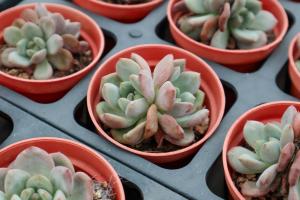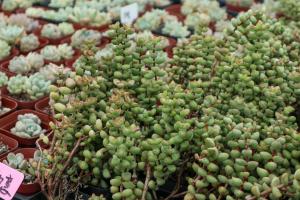Introduction
Bamboo is a unique plant that is versatile, easy to maintain, and ideal for decorating both indoor and outdoor spaces. However, growing bamboo in pots can present some challenges, especially when it comes to providing the right nutrients to promote healthy growth. One of the most common questions that bamboo growers ask is whether they should use plant food for bamboo in pots. In this article, we will explore the benefits and drawbacks of using plant food for bamboo in pots and provide some recommendations based on our research.
Benefits of using plant food for bamboo in pots
Using plant food for bamboo in pots can offer several benefits, including improving growth, enhancing foliage, and promoting overall health. In particular, bamboo plants grown in pots can be more susceptible to nutrient deficiencies because they have less access to the soil's natural nutrients. Adding plant food can help to supplement these missing nutrients and encourage healthy growth. Additionally, using plant food can promote richer, fuller foliage that is more resistant to pests and diseases.
Drawbacks to using plant food for bamboo in pots
While using plant food can be beneficial for bamboo grown in pots, there are also some potential drawbacks to consider. One of the primary concerns is the risk of over-fertilizing, which can lead to nutrient burn and other issues. Over-fertilizing can also cause excessive growth that can make a pot-bound bamboo plant root-bound, which could hinder growth and even cause harm. Additionally, some types of plant food may contain harmful chemicals that can harm the bamboo if applied excessively or at the wrong time.
Recommendations for using plant food with bamboo in pots
Based on our research, there are some general recommendations for using plant food with bamboo in pots. First, it is essential to use a plant food that is designed specifically for bamboo plants, as this will help ensure that the nutrients are appropriate for the plant's needs. Second, it is essential to follow the instructions on the plant food label carefully, as over-fertilizing can be harmful to the plant. Third, it is best to apply plant food sparingly and only when the bamboo is actively growing, which is typically during the summer months.
Alternative options for providing nutrients to bamboo plants in pots
While using plant food can be an effective way of providing nutrients to bamboo plants grown in pots, there are also some alternative options to consider. One option is to incorporate organic matter, such as compost or manure, into the soil regularly to supplement the natural nutrients. Another option is to use slow-release fertilizers, which can provide a steady supply of nutrients over an extended period, reducing the risk of over-fertilizing.
Conclusion
In conclusion, using plant food for bamboo in pots can be an effective way of promoting healthy growth, enhancing foliage, and promoting overall health. However, it is essential to follow the instructions carefully and avoid over-fertilizing, which can cause harm to the plant. Additionally, there are alternative options to consider, such as incorporating organic matter or using slow-release fertilizers. Ultimately, the key to success in growing bamboo in pots is to understand the plant's unique needs and provide it with the appropriate care and nutrients to thrive.

 how many times do yo...
how many times do yo... how many planted tre...
how many planted tre... how many pine trees ...
how many pine trees ... how many pecan trees...
how many pecan trees... how many plants comp...
how many plants comp... how many plants can ...
how many plants can ... how many plants and ...
how many plants and ... how many pepper plan...
how many pepper plan...
































